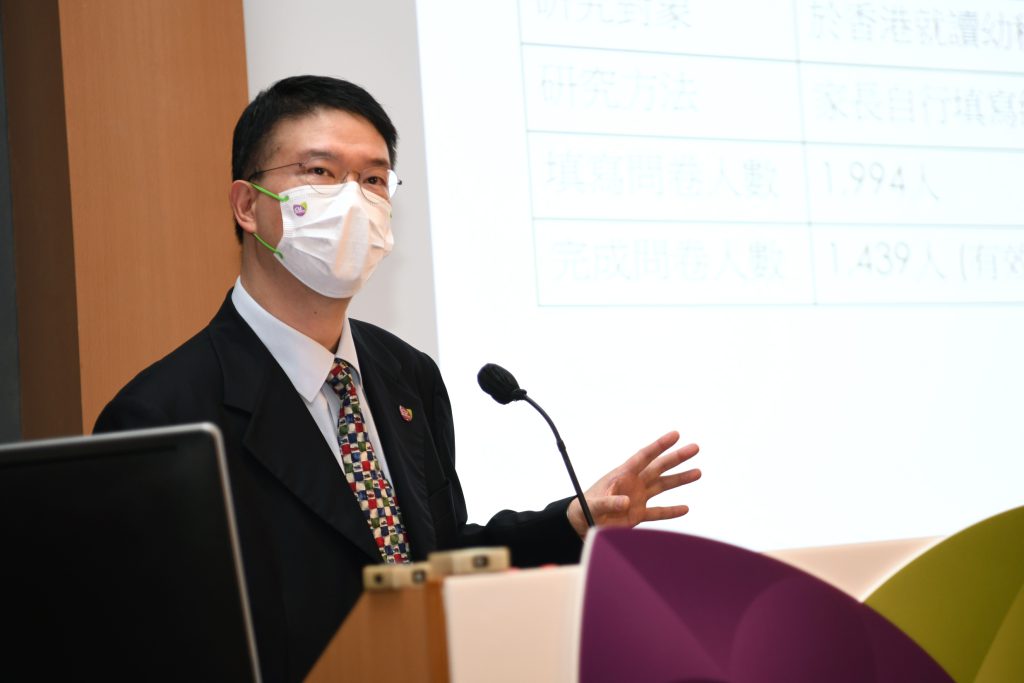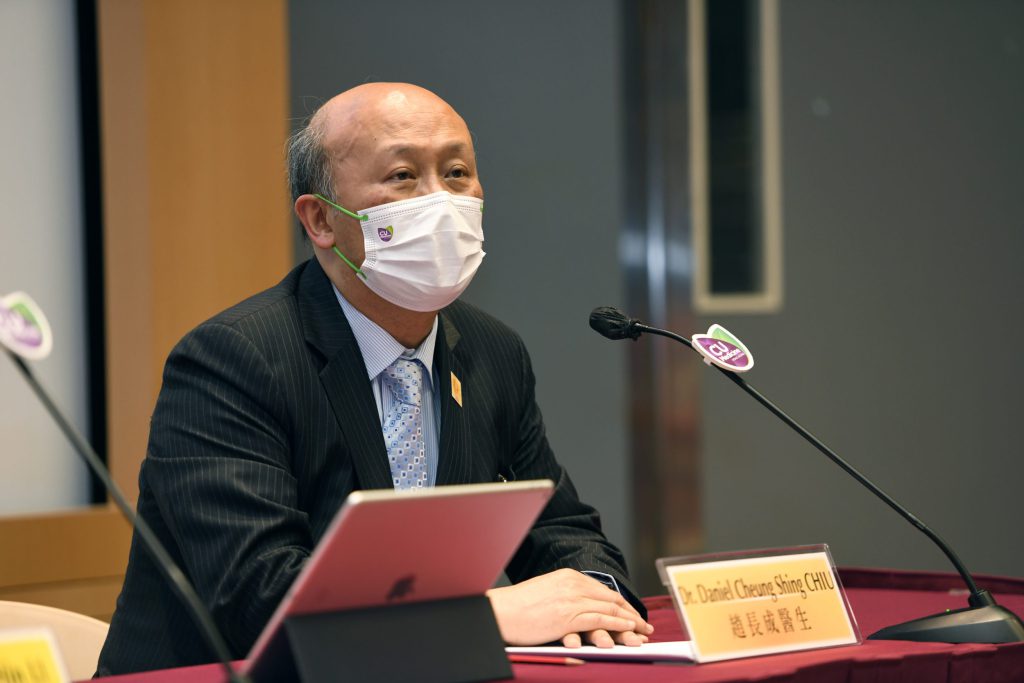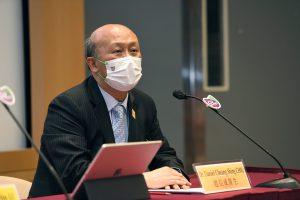CUHK
News Centre
COVID-19 pandemic disrupted the daily lives of schoolchildren in Hong Kong; Proportion of overweight and obese kids more than doubled
With nearly 450 days of school closures and suspension of face-to-face classes, the COVID-19 pandemic, which has lasted for more than two years, has severely disrupted children’s learning progress, as well as their day-to-day life, dietary patterns and health. A survey conducted by the Hong Kong Paediatric Foundation (HKPF) and the Department of Paediatrics of The Chinese University of Hong Kong’s (CUHK) Faculty of Medicine (CU Medicine) found that children’s eating, sleeping, exercising and electronic device use habits were all disrupted by the pandemic, and that the prevalence of overweight and obese children has increased by 1.8 times. As schools have been reopened, many children have found it difficult to resume classroom learning and are reluctant to return to school. The research team advised making changes, starting from policy-making and also including school life and daily routines, to support children as they gradually return to a regular and healthy life.
HKPF, in collaboration with CU Medicine, conducted an online survey which was completed in mid-June 2022 on the impact of the pandemic (2020 to present) on family expenses, children’s eating habits and their daily lives. 1,439 parents of kindergarten or primary school students were interviewed.
Prevalence of overweight and obese children during the pandemic more than doubled
During the pandemic, the prevalence of overweight and obese children increased by 1.8 times. Among children aged 9-13, the prevalence of being overweight or obese increased from 7% to 24%, with details shown in Table 1. The survey indicated that the main causes of obesity included an unhealthy diet and lack of exercise, as well as changes in sleep patterns that have disrupted eating habits. Major findings as compared to lives before the pandemic are as follows. Details are shown in Table 2.
- Compared to the pre-pandemic period, 50% of parents reported that children consumed more snacks and sugar-sweetened beverages, and nearly 60% ate more snacks that interfered with their appetite for regular meals.
- 80% of children spent less time playing outdoor sports and 60% spent less time in after-school activities.
- 90% of children spent more time using electronic devices.
- 40% of children slept more.
- The older the child, the higher the rate at which poor lifestyles and unhealthy eating habits developed.
Dr. Lilian Hiu Lei WONG, Secretary-General of HKPF, said, “Children did not have a normal school life or social life during the pandemic. They could not go out for sports and play, so they inevitably felt bored and spent their time playing video games and eating snacks. Sleep patterns became irregular. Some children even developed weight problems. Their physical and mental health were greatly affected.”
20% of parents were extremely stressed during the pandemic and children showed reluctance to go to school
The pandemic has brought numerous challenges to parents. The survey indicated that 30% of respondents experienced a decrease in total monthly household income while total expenditure increased. 63% of respondents spent more money on food compared to before. Many children were unable to get used to the resumption of face-to-face classes and showed negative emotions when school reopened, or even refused to return to school. The survey showed that 20% of parents said they did not know how to handle the situation, and 20% of them had stress levels as high as 9-10 (10 being the highest). As parents’ and children’s emotions interact closely with each other, children of parents with higher stress levels showed higher rates of temper tantrums, and were blamed by parents for that. Overall, the children’s health index dropped by 10% and the happiness index dropped by 21% during the pandemic. For parents with higher stress levels, the happiness index of their children dropped by 35%. Details are shown in Table 3.
Professor Albert LI, Chairman and Professor of the Department of Paediatrics at CU Medicine, said, “The changes in day-to-day routines during the pandemic had a long-term impact on children’s mental health, social wellbeing and daily habits, even more so than contracting the disease. Parents often felt overwhelmed and helpless under such circumstances. Helping children to regain a healthy lifestyle is of utmost importance at the moment.”
Parents, schools and doctors should work together to help children re-establish their daily routines
The survey found that many parents have tried to readjust the diet and living habits of their children in order to resume a regular, healthy life. The research team suggested that in order to help children regain a healthy lifestyle, parents can start with normal school life first and then spend more time with their children at home (refer to Table 4 for more useful life tips). Children who contracted COVID-19 will need additional support, especially those who have long-COVID symptoms. Parents, teachers and paediatricians should maintain regular communication with children and monitor their progress closely.
Dr. Daniel Cheung Shing CHIU, Member of the Board of Directors of HKPF, said top priority should be given to establishing a Children’s Commissioner and developing a comprehensive, long-term Child Health Policy. The existing Commission on Children should be strengthened to respond more effectively to child health crises, so that prevention, early identification and close monitoring of child health issues can be implemented. “The results of this survey once again reveal that child health issues require long-term, comprehensive planning and dedicated support. Formatting a comprehensive child health policy is a matter of urgency,” said Dr. Chiu.

A survey conducted by the Hong Kong Paediatric Foundation (HKPF) and the Department of Paediatrics of CU Medicine found that children's habits of eating, sleeping, exercise and use of electronic devices were all disrupted by the pandemic, and the prevalence of overweight and obese children has increased by 1.8 times. (From left) Dr. Lilian Hiu Lei WONG, Secretary-General of HKPF; Professor Albert LI, Chairman and Professor of the Department of Paediatrics at CU Medicine and Dr. Daniel Cheung Shing CHIU, Member of the Board of Directors of HKPF.








